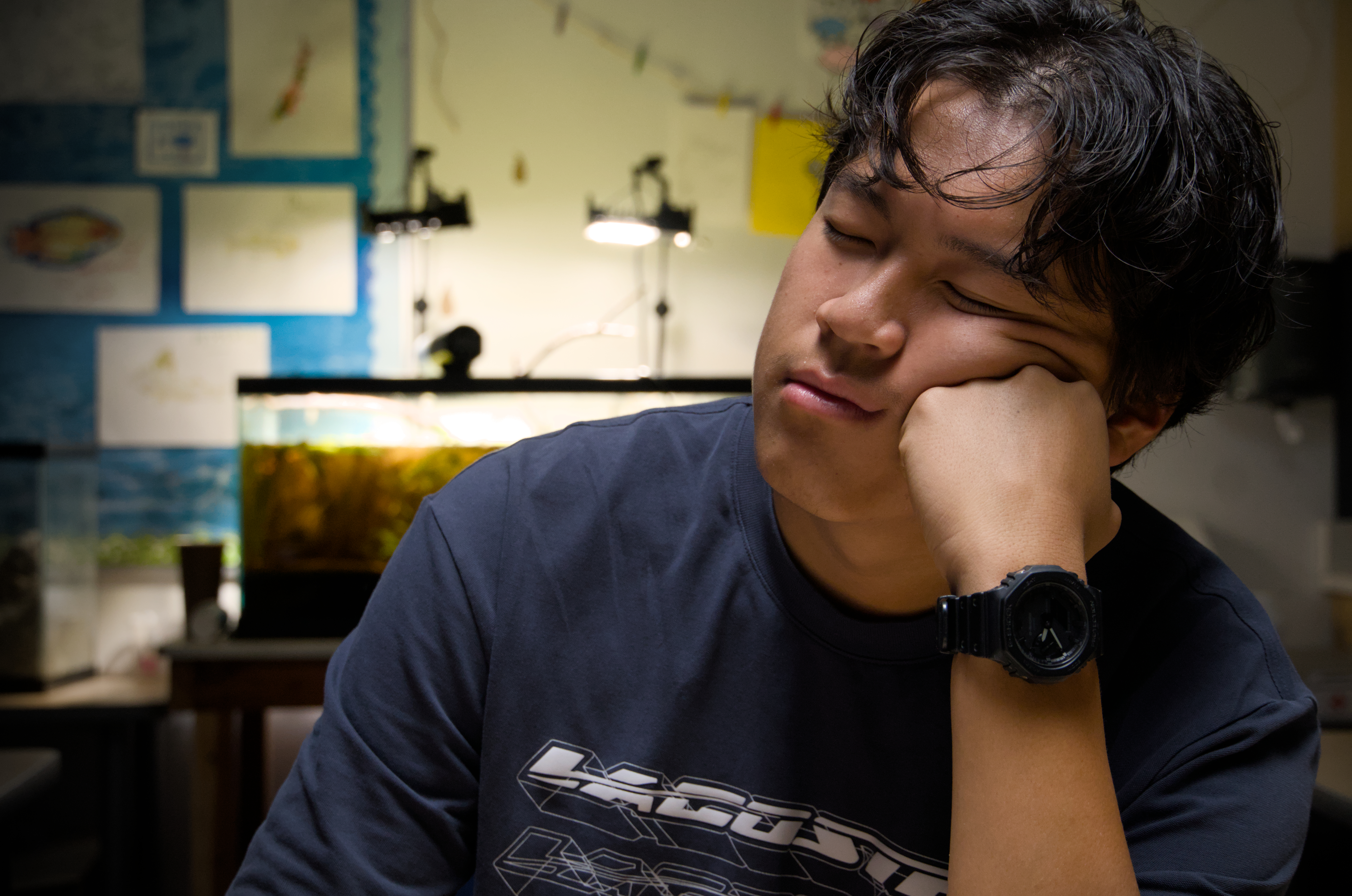Why BIFU Student's Aren't Getting Enough Sleep
 A familiar scene: You’re scribbling away on homework that’s due tomorrow. You still need to study for that chemistry test—you lift your eyes to glance at the clock. It reads…12:13 a.m. That's… 6 hours-ish? That should be enough, you tell yourself.
A familiar scene: You’re scribbling away on homework that’s due tomorrow. You still need to study for that chemistry test—you lift your eyes to glance at the clock. It reads…12:13 a.m. That's… 6 hours-ish? That should be enough, you tell yourself.
As students, and more importantly, teenagers, we are often told that sleep is key—to our growth, mental development, and ability to function and learn throughout the day. Doctors say that we need 9 hours.
A survey conducted by The Yellow Pages with 65 respondents across 6 grades showed that students sleep on average ~7 hours and 11 minutes on school nights, with juniors sleeping the least, with an average of only ~6 hours and 15 minutes..
One sophomore, Katherine Sun, has her bedtime set in the 1-2 a.m. range. She often spends that time catching up on homework, drawing, or just scrolling on her phone in bed.
“[Sleeping] depends on whether or not I have extra homework, [or] if I forgot to do something,” said Katherine.
Katherine’s experience is shared across the school; 82.8% of students cited homework, and 71.9% cited exams as the most common reasons to stay up.
Jason Ni, a senior, believes that there's more to staying up than merely homework or exams.
“With zero period and clubs, we don’t really get much free time. So people have to use their sleep hours as free time, ” said Jason.
To his point, zero period plays a significant role in how many hours of sleep a student gets. Across all grades, students without a zero period averaged an additional ~48 minutes.
The effects of sleep deprivation can be long-term, and oftentimes, continuous sleep deprivation can impact a student academically. Continually feeling tired makes it more difficult to pay attention in class, store information, and think critically.
Katherine feels as if her sleep schedule is responsible for academic troubles that she’s had in the past, namely, damaging grades and leading to class placements she didn’t like.
“I would tell my younger self that you should go to bed before 2 a.m. because one day… you’re going to end up in Honors English,” said Katherine. Jason feels that his long-term memory has been impacted, as he can’t remember things that he used to recall easily.
“[Sleep deprivation] might be having an effect on my memory. I feel like my memory has been getting worse lately,” said Jason, “I can’t remember the names of half of my teachers from middle school.”
There are ways to improve sleep without sacrificing studying. Screen time in the hour before bed has a significant impact on sleep quality and time. Students who used screens <15 minutes an hour before going to bed reported ~11% better sleep quality, and slept ~30 more minutes than those who used screens for ~30-60 minutes.
In comparison with the nation, BIFU isn’t far from the average, as the CDC reports that “on school nights, U.S. high school students average less than 7 hours of sleep per night,” suggesting that the issues are a result of greater forces that affect teens across America. Early schooling times misalign with teenage circadian rhythms, and classes in zero period further exacerbate this issue.
Ultimately, sleep is a choice. It is an individual choice that determines the trajectory of one’s life, from how tall one might grow to what grades a student might get.
But if you ask BIFU what they’d do with two extra hours in the day, few will say sleep.
“I would want to say sleep, but I probably wouldn’t,” Jason said. “Probably doomscrolling.”